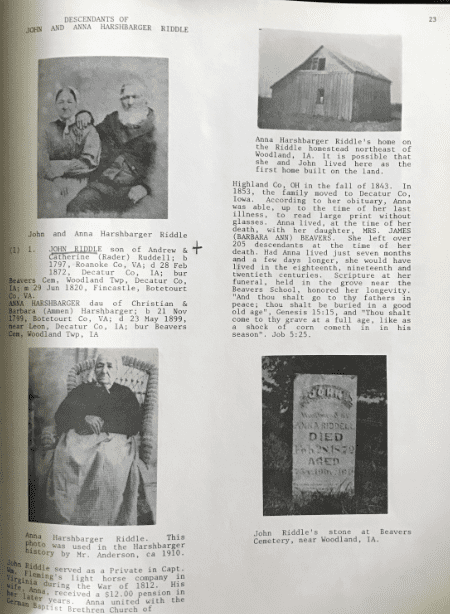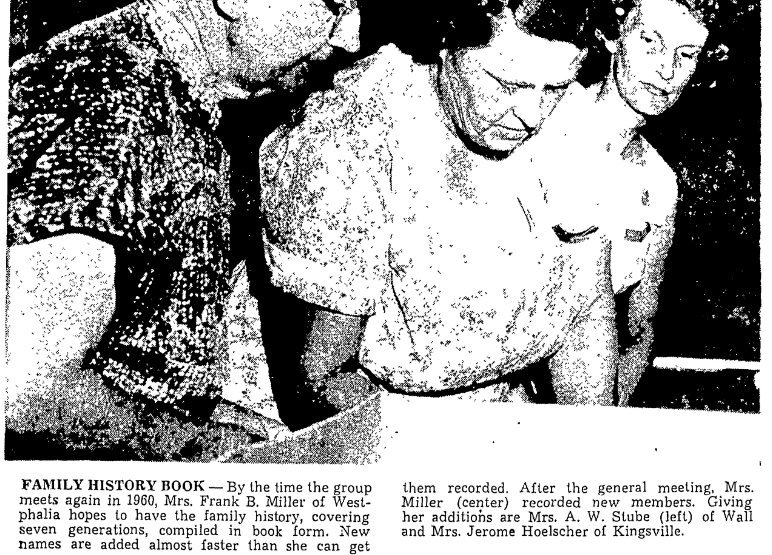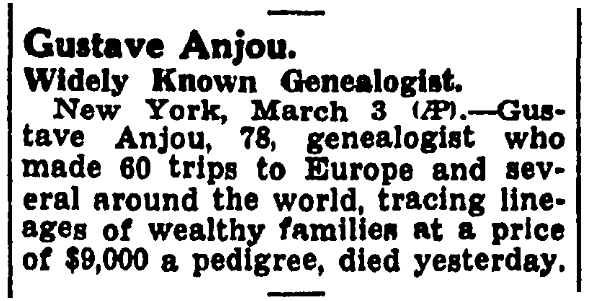Introduction: In this article, Gena Philibert-Ortega writes about a valuable resource for genealogists: family history books. Gena is a genealogist and author of the book “From the Family Kitchen.”
Family history books, also referred to as surname books or genealogies, are typically a genealogist’s introduction to their own family history. Perhaps you own a family history tome that was a catalyst for your becoming more interested in your family history. Maybe you’ve searched for a copy through FamilySearch. While these books can seem like a researcher’s lifesaver, there are some things you should consider before using the information found within them to create your family tree.

What Are Family History Books?
Family history books once concentrated solely on who begat whom; they contained mainly names, dates, places and long lists of descendants – but the concept of an ancestry book has evolved over time to include stories, digitized images, and personal photo collections. In the past, these books were large, hardcover, dense treatments of family history that contained information gathered by an individual, a group of family members, or even a professional genealogist. Because of the expense of printing such large books, they usually were printed in small batches with a possible copy or two donated to a genealogy library.

Where Are Family History Books Found?
Family history books can be found in libraries and online via digitized book websites. Start your search with the FamilySearch Catalog and conduct a surnames search. Books that are digitized will include a link to FamilySearch Books, which can also be searched separately.
Digitized book websites such as Google Books and Internet Archive include family history books. When searching Google Books, you can enter your surname and the keywords “family history” or “genealogy,” or you can search for your ancestor using an exact phrase search. An exact phrase search uses quotation marks around the name, essentially telling Google to search on that phrase. For example, “John Smith” will only return ancestry book queries that include both words “John” and “Smith.” An Advanced Search engine is also available once you’ve conducted your initial search and are viewing your results list. At the top of the screen is a Settings link; click on that to reveal a drop-down menu with the Advanced Search option.
To search Internet Archive, click on the orange Texts icon and then choose Additional Collections. Once you are on the Additional Collections web page, choose Genealogy. These collections of digitized books are from the “Allen County Public Library Genealogy Center in Fort Wayne, Indiana; Robarts Library at the University of Toronto; the University of Illinois Urbana-Champaign Library; Brigham Young University in Provo, Utah; the National Library of Scotland; the Indianapolis City Library’s Indianapolis City Directory and Yearbooks Collection; The Leo Baeck Institute Archives of German-speaking Jewry Leo Baeck Institute Archives; and the Boston Public Library.” From this collections page, you can search for the surname you are looking for in your ancestry book research.
Use with Caution!
It would seem that a family history book has everything a researcher could want: names, dates, and places. So, what’s the downside of using surname books? The biggest problem is that in the past, and to some extent even now, an ancestry book can lack source citations or have incomplete citations. After all, there wasn’t a codified template for how to put together a family history book. Because of this, it’s impossible to accept the information contained within as fact.
The lack of source citations by family historians has historically been a problem. In the past, there was little emphasis on documenting where you found information – or even making sure the information found was correct. Even in cases where a book has source citations, they may be very vague – like one that exists in one of my family lines where facts for several generations include a family Bible as a source citation. Unfortunately, when I tried to track down this Bible, no one knew where it was or who owned it. Each family historian had just copied the vague citation when creating a family history book, not knowing if it even existed.
While errors involving source documentation may be largely ones of omission, in some cases they were ones of commission. Take, for example, the infamous genealogist Gustave Anjou, who prepared fraudulent genealogies for his clients. Some of those genealogies can still be found today and may be used by unsuspecting researchers as they establish their family history book layout. You can find the titles of some of Anjou’s books by searching for his name in the library catalog WorldCat.

Family History Books Provide Clues
Just like online family trees, surname books may hold clues – but make sure to carefully prove the information you find in these books. In addition, don’t just use family history books for research clues; consider writing your own family history book in which you have carefully documented photos, stories and facts for the next generations to treasure.
How to Write a Family History Book
When writing family history books, you should gather as much information as possible about your family’s history. Crafting a genealogical book might include talking to relatives, researching historical records, and collecting photos, art, and other cultural memorabilia. Don’t forget to scour the internet for family history book examples so that you have a basis for the layout.
Once you have all of your material, you’ll need to arrange it in a way that makes sense. Regarding how to organize a family tree book, this could involve creating a family tree, a timeline, or writing a narrative that tells the stories of the people that make up your lineage.
Here are some family tree book ideas to keep in mind as you write your family history book:
● Determine the scope and focus of your book: Depending on how much information you have, you may need to narrow your focus to specific years or branches of the family. It would help if you also decided on the tone and style of your book and any themes or motifs you want to explore.
● Write the book: You can use different styles and formats to undertake this project, such as a narrative or a chronological style. Find one that suits you and start writing.
● Make edits: Once you have your sample family history book, you’ll need to edit and revise it. A thorough revision might involve cutting out material or reordering sections.
Remember that writing a family history book is a great way to connect the branches of your family tree and share your family’s story with future generations. Start writing yours today!

I’m looking for an ancestry book that might have been published or saved somewhere for the name Asseff or Aseff. My uncle John Peter Aseff was doing the family tree during the 1970s-1980s and I would like to get a copy if possible or at least be able to see it. My great-grandfather Farris Asseff came to Canada in the early 1900s and met my great-grandmother Celina Champagne. They married and moved to Charleston, WV, raised their 7 children, and died there. I can’t seem to find any other info for either of my great-grandparents and would greatly appreciate some help or advise. Thank you for any information available on this matter.